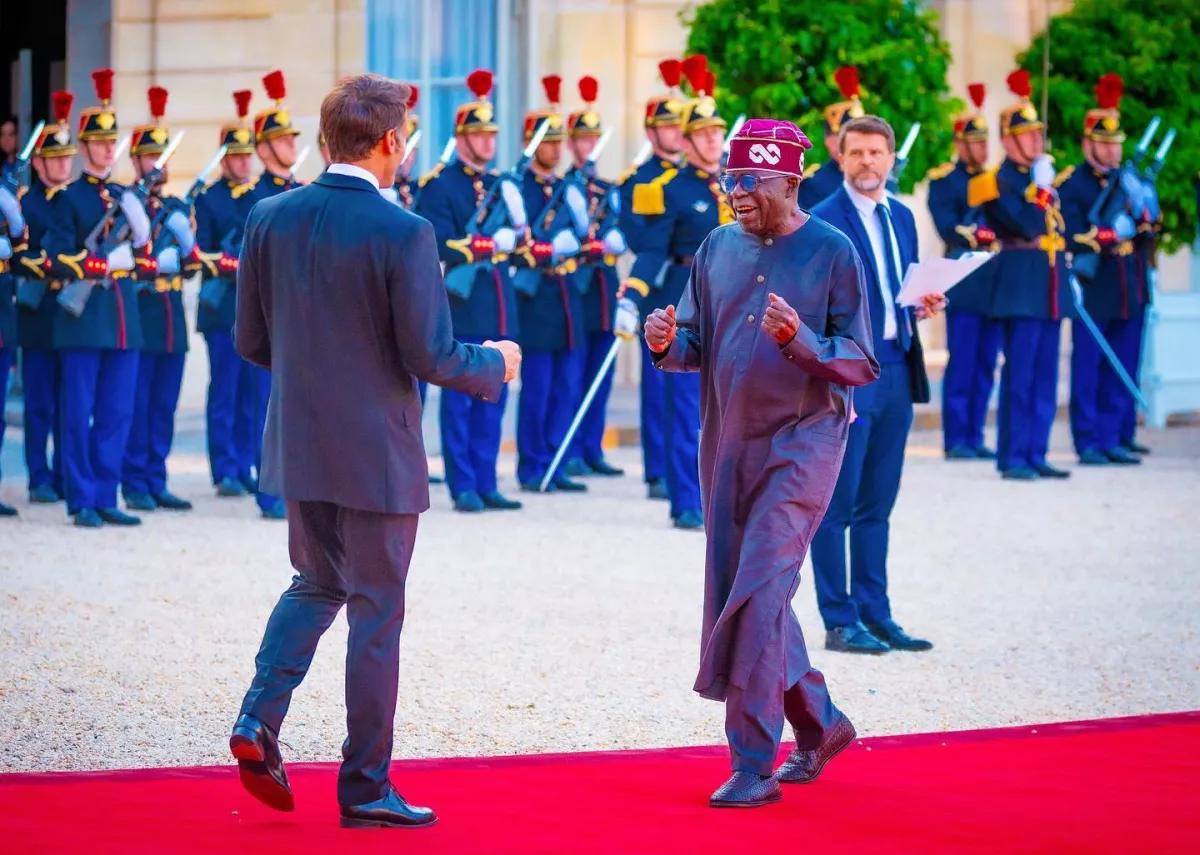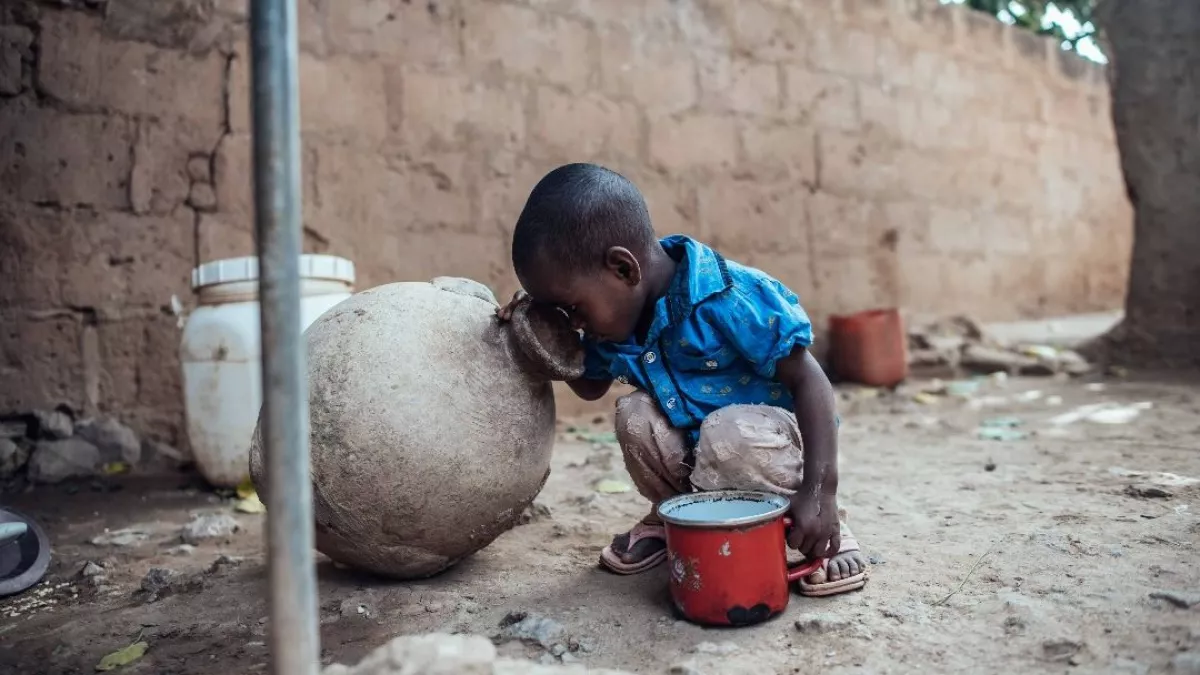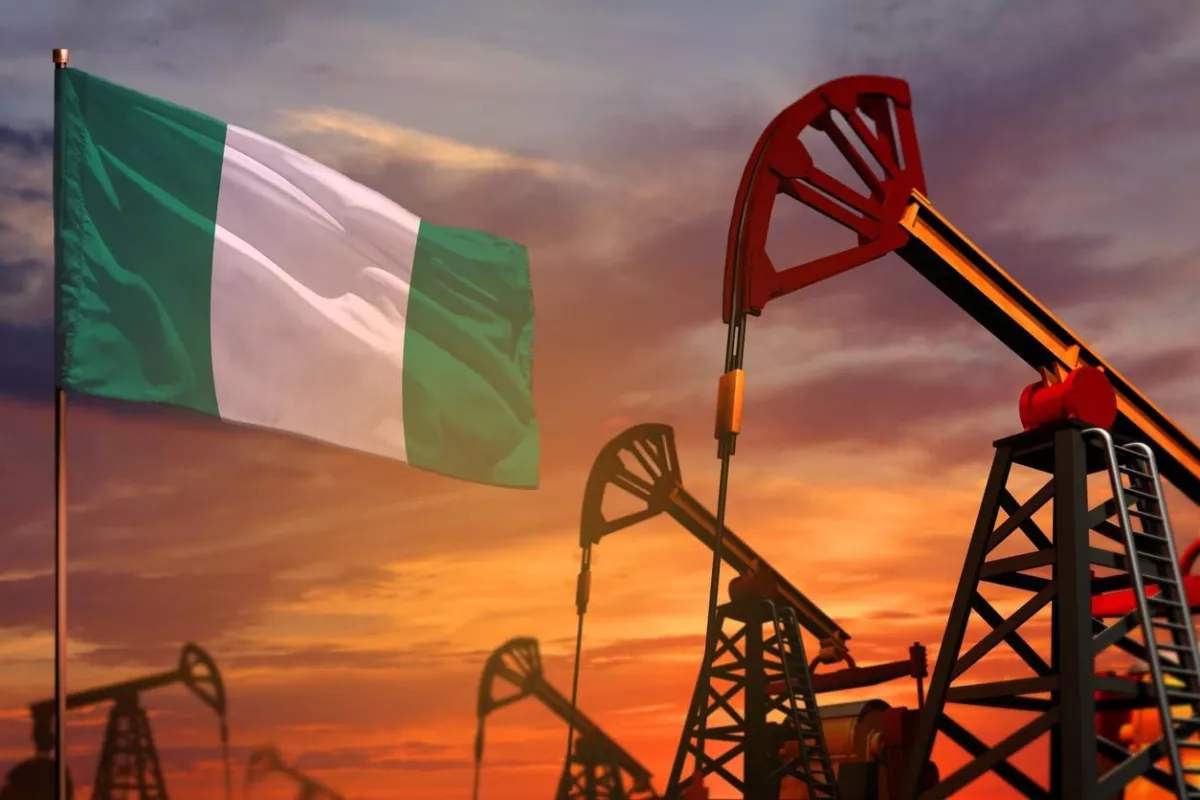Nigeria in the embrace of the French octopus A neocolonial power play
Will Nigeria become the new French fiefdom? Paris has lost several former colonies in Africa but is trying to compensate for this in another direction.
On November 28-29, the President of the Federal Republic of Nigeria, Bola Ahmed Tinubu, paid a state visit to France. During the visit, a number of economic agreements were signed. But what does the presence of French corporations really bring to the African nations?
Black gold from the black continent
The Nigerian president arrived in Paris with his wife, Oluremi, and the Macron couple officially greeted them. The talks between Tinubu and Macron focused primarily on economic matters. On November 28, both attended a session of the Franco-Nigerian Business Council. On November 29, Bola Tinubu discussed the further expansion of the French capital’s presence in Nigeria at the Medef forum, which unites major French businesses.

The Franco-Nigerian Business Council was established in 2018 during President Macron's visit to Abuja. Nigeria is now France's largest trading partner south of the Sahara. It ranks first in Africa and sixth in the world by population, with 227 million people. By 2050, the population is expected to reach 410 million, and some estimates suggest that by 2100, Nigeria’s population could surpass that of China. Until 2023, the country also held the top position in Africa in terms of GDP per capita. But most importantly, the Federal Republic of Nigeria is a treasure trove of natural resources. Nigeria extracts oil, gas, coal, tin, and columbite. It is the leading oil producer in Africa and the eighth-largest in the world.
Promises of equal partnership
During the Nigerian president's current visit, agreements were signed totaling 300 million euros. Nigeria already accounts for 65% of France's direct foreign investments in West Africa. The French group TotalEnergies and other companies have long been dominant in the oil extraction sector. The discussions also covered French involvement in the agriculture and food industries, as well as banking. Four Nigerian banks already operate in Paris, and now it has been announced that another Nigerian bank will establish a presence in France. Education, culture, and security issues were also discussed at the meeting.
As usual, France and its corporations are particularly active in French-speaking countries that were once its colonies. Nigeria, however, is an example of where new French expansion is extending into an English-speaking country (the official languages of Nigeria also include Hausa, Yoruba, and Igbo).
Today, Nigeria suffers significant damage from attacks by terrorist organizations and simply criminal gangs, including Boko Haram, the Islamic State West Africa Province (ISWAP), the Bakassi Boys, and others. However, the "effectiveness" of France's military aid in the fight against terrorists and radicals can be seen in the transitional governments of Mali, Burkina Faso, and Niger, which ultimately asked the French Legionnaires to leave.
This is likely why new tones emerged in the discussions surrounding the current meeting between Macron and Tinubu. An unnamed French diplomatic source told France24: "Relations with Nigerians ‘embody the change in approach that we want to initiate,’ as ‘they are courted by everyone and want an equal partnership, not a 'teacher-pupil' approach’."
However, both the French and other Western powers have historically turned a blind eye to human rights violations and brutal terrorism, as long as they came from regimes loyal to them.
Warning to exploiters
Many experts view the current intensification of France-Nigeria relations as an attempt by the Élysée Palace to compensate for its recent major defeat in the Sahel. After the rise to power of progressive military governments in Mali, Burkina Faso, and Niger, membership of these countries in the Economic Community of West African States (ECOWAS), which operates under Paris' aegis, was suspended. It seems that, following this, Macron and his team began viewing Nigeria as a platform for their revanche in Africa.
In July 2023, shortly after his election as President of Nigeria, Bola Ahmed Tinubu also assumed the position of Chair of ECOWAS. He emphasized his commitment to democracy, although he acknowledged that "it is very difficult to govern." "We need this to set an example for the rest of Africa and the world. We will not allow coups after coups in West Africa," Tinubu stated, clearly referring to the anti-imperialist military regimes in the Sahel. However, at the beginning of his presidency, the new Nigerian leader also said: "We must warn the exploiters that our people have suffered enough."

The 71-year-old Tinubu, a former governor of Lagos, is a multimillionaire and a respected figure in southern Nigeria, earning the nickname "Kingmaker." As president, he succeeded his party colleague Muhammadu Buhari, who served two terms in office.
Tinubu inherited significant challenges from his predecessors. "As you are all aware, we took the baton of authority at a time when our economy was nose-diving as a result of heavy debts from fuel and dollar subsidies," Tinubu said upon taking office. During military rule in Nigeria, there was state price regulation, but subsequent liberal governments removed price controls on many goods, including petroleum products, and pursued privatization of the oil sector, among other measures. In the final years of Buhari’s presidency, the country's economic growth significantly slowed. From 2014 to 2022, Nigeria led Africa in GDP, surpassing even South Africa. However, today, it ranks only fourth on the continent by this measure. For instance, GDP growth per capita from 2018 to 2022 was +3.8%, but in 2021/22, this figure went into the negative at -2.9%. In 2024, the national currency, the naira, depreciated by 45%, and food prices rose by 40%.
Currently, more than half of Nigeria’s population lives below the poverty line. However, it seems that the current government has continued the neoliberal policy of social cuts. Already at his inauguration in May 2023, Tinubu announced the removal of fuel subsidies, which he himself called "a difficult decision." He stated, "Unfortunately, the good life we thought we were living was a fake one that was capable of leading the country to a total collapse unless drastic efforts were urgently taken."
Serious problems include corruption and crime. In April 2024, the Nigerian Anti-Corruption Agency, following an investigation initiated by the president, uncovered corruption schemes in the Ministry for Poverty Alleviation amounting to about 30 million dollars. Some banks were also found to be involved in the fraud. Violence dominates the situation, and just days before Bola Tinubu’s inauguration, inter-community clashes between farmers and herders claimed the lives of hundreds, with thousands becoming refugees.
French investments vs. exports from France
The directions that may be affected by new contracts can also be indicated by the participation in the current session of the Franco-Nigerian Business Council, alongside the presidents of both countries and Nigerian billionaire Aliko Dangote. He is the head of Dangote Group, one of the largest cement companies in Africa. The Dangote Group is also building Africa's largest oil refinery, a fertilizer production complex, and is involved in agriculture, sugar, salt, and more. The billionaire co-chairs the U.S.-Africa Business Center, and in 2013, Forbes named him "The Most Influential Person in Africa." In 2020, Al Jazeera called him the richest person in Africa.
Today, over 100 French companies are present in various sectors of the Nigerian economy. In the oil and related industries, companies like Seplat, Schlumberger, Ponticelli, Technip FMC, SPIE OGS, and DBN Vinci are active. In the food and agriculture sector, Danone, Pernod Ricard, Moët-Hennessy, and Servair Newrest are involved. In local industry, companies such as Lafarge, Schneider Electric, Air Liquide, Nexans, Vallourec, and Sokoa Chairs operate. In pharmaceuticals, Biogaran and Sanofi are active, while L’Oreal works in the perfume industry.
French capital exports to Nigeria have doubled over the past decade. The French Ministry of Foreign Affairs proudly reports that in 2021, France surpassed both the former Nigerian colonial power, the United Kingdom, and the United States in investments in Nigeria, amounting to €7.2 billion.
The French Development Agency (AFD) is actively working in Nigeria, having provided around €2 billion in loans since 2010. Interestingly, just a few days before the meeting between the French and Nigerian presidents in Paris, the government of Niger banned the activities of AFD in its country.
It is noteworthy that Nigeria's exports to France significantly exceed imports of French products—€4.4 billion versus €636 million, respectively. Oil and other extractive industry products account for 96.3% of Nigeria’s exports.

French corporations extract cheap and high-quality oil from this African country and sell back refined products such as gasoline, making substantial profits. In other words, France's economic relations with Nigeria follow a typical neocolonial exploitation model.
However, exports from France to Nigeria have steadily declined. In the early 2010s, exports were valued at €1.6 billion, but now they have decreased by 63%. France now holds less than 2% of the Nigerian market, a sharp reduction from nearly three times that share in 2010. This decline is primarily due to the significant competition from China. Products from China have now become dominant in Nigeria, with their market share increasing from 18% to 27% over the past decade.
Interestingly, the decline in French exports has been partially driven by the very French investments in Nigeria. Many French companies have relocated their production to the African country, attracted by its extraordinarily cheap labor. As a result, these companies have, in a sense, stepped on their own toes.
The highly publicized investments and loans provided to Nigeria are not given out of goodwill, but are contingent upon the implementation of neoliberal reforms and social cutbacks demanded by global financial institutions. For example, the heads of the African Export-Import Bank and the European Bank for Reconstruction and Development (EBRD) praised Nigeria's president for the removal of fuel subsidies.
This one-sided cooperation with Western financial institutions inevitably leads to a debt trap. Nigeria's external debt currently exceeds $40 billion, having increased by over 2% in the past year. The largest portion of this debt is owed to the World Bank and the African Development Bank (AfDB), which together hold 49.7% of the total debt. The second largest portion is made up of Eurobonds (35.5%), followed by bilateral loans at 14%.
It is not surprising that today, more and more African countries are choosing to collaborate with China and other states. The People's Republic of China, by investing in their development, does not impose a specific political or economic model, does not finance opposition groups, orchestrate coups, or insist on cuts to social welfare programs. It is clear and natural that this policy of mutually beneficial cooperation is much more attractive to countries in the Global South, which are striving for genuine development and true independence.








